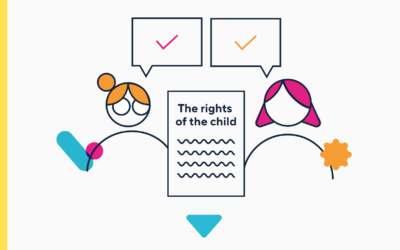Artificial intelligence promises considerable social and economic benefits, but at the same time it poses legal challenges.
These challenges are of particular importance in data protection and #privacy, since the vast amount of information processed to develop and deploy most of the #AI-powered systems can include #personaldata, thus bringing #dataprotection regulations into action.
Below I compiled a list of the most useful EU guidelines to become acquainted with this phenomenon.
I really welcome any recommendation to include in this list
EU Guidelines on artificial intelligence and data protection
General guidelines
EDPB, Guidelines on Automated individual decision-making and Profiling (2018)
It clarifies the definitions of profiling and automated decision-making and the GDPR approach to these in general, the general provisions on profiling and ADM and specific provisions on solely ADM in Article 22, the impact of profiling on children, and recommendations for DPOs and how to carry out DPIAs
ICO, Guidance on AI and data protection (2020)
Best practices for data protection-compliant AI, and how we interpret data protection law as it applies to AI systems that process personal data
AEPD, GDPR compliance of processing that embed Artificial Intelligence. An introduction (2020)
It addresses some concerns regarding privacy compliance in AI systems and the more relevant aspects regarding the design and implementation of AI compliant systems
ICO, Big data, artificial intelligence, machine learning and data protection (2017)
Evaluates the implications of BD, AI and ML for data protection, and explains the ICO’s views on the subject
European Commission, Defining Artificial Intelligence. Towards an operational definition and taxonomy of artificial intelligence (2020)
It proposes an operational definition of AI to be adopted in the context of AI Watch, the Commission knowledge service to monitor the development, uptake and impact of AI for Europe
Explaining AI systems
ICO, Explaining decisions made with AI (2020)
It gives organisations practical advice to help explain the processes, services and decisions delivered or assisted by AI, to the individuals affected by them.
Auditing AI systems
AEPD, Audit Requirements for Personal Data Processing Activities involving AI (2020)
It outlines relevant and specific controls that audits of AI systems must include
Ethical approaches
EU Commission, Ethics guidelines for trustworthy AI (2019)
This document puts forward a set of 7 key requirements that AI systems should meet in order to be deemed trustworthy
EU Commission, Assessment List for Trustworthy Artificial Intelligence (ALTAI) for self-assessment (2020)
It translates AI principles outlined in the Ethics Guidelines for Trustworthy Artificial Intelligence into an accessible and dynamic checklist that guides developers and deployers of AI in implementing such principles in practice
CNIL, How Can Humans Keep the Upper Hand? The ethical matters raised by algorithms and artificial intelligence (2017)
Cybersecurity
ENISA, Artificial Intelligence Cybersecurity Challenges (2020)
It maps the AI cybersecurity ecosystem and its Threat Landscape
Enforcement
EDPS, Opinion on coherent enforcement of fundamental rights in the age of Big Data (2016)
It recommends establishing a Digital Clearing House for enforcement in the EU digital sector, a voluntary network of regulatory bodies to share information about possible abuses in the digital ecosystem and the most effective way of tackling them




0 comentarios